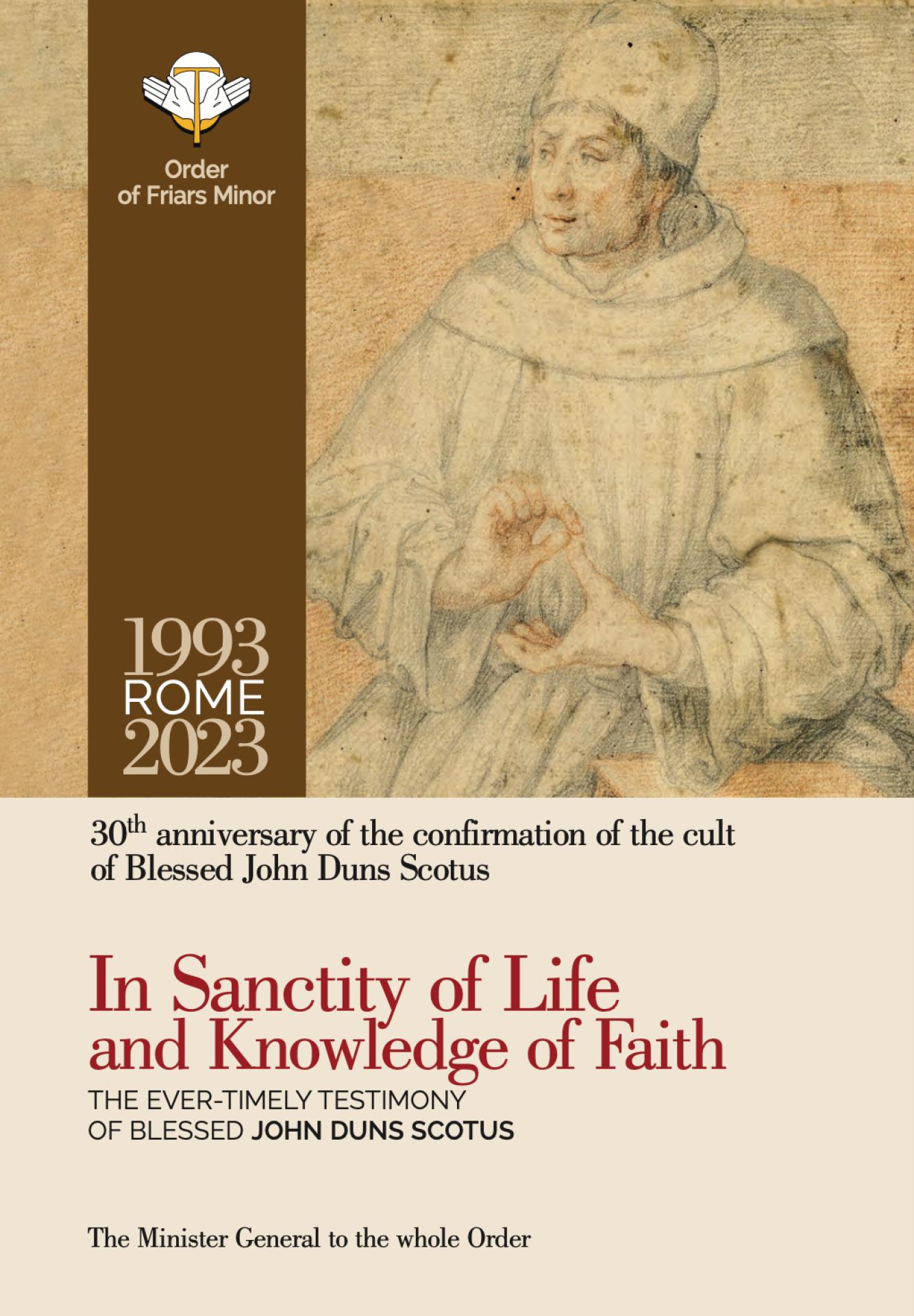On 20 March 1993, Pope John Paul II confirmed the cult ab immemorabili paid to John Duns Scotus. On the 30th anniversary of this confirmation, the Minister General, Br Massimo Fusarelli, wrote a letter entitled "In the Sanctity of Life and Knowledge of Faith. The ever-timely testimony of Blessed John Duns Scotus". He recalls "some essential characteristics and the message that he never ceases to address to us so many centuries after his brief and intense existence as a friar minor, a passionate seeker of the mystery of God, a teacher and disciple of Incarnate Wisdom".
Read the Minister General's Letter: English - Italiano - Español - Hrvatski - Polski - Français - Português - Deutsch
To understand the relevance of Blessed John Duns Scotus in our days, the Order's Communications Office interviewed Br Josip Percan, OFM, President of the Scotist Commission. We publish an excerpt of the interview.
In his letter, the Minister General writes that he was present in the Vatican Basilica when the announcement of the confirmation of the cult was made and recalls "the almost incredulous joy of that hour, especially on the part of those among us who had studied so much and made the new Blessed known". What do you remember from that day?
Br Josip Percan: I was among the youngest at the time. I remember the special entrance into the basilica: I do not know which corridors we passed through. We were taken to our reserved seats, and from there, we joined the solemn vespers, during which there was the reading of the confirmation of the cult of Blessed John Duns Scotus.
"This great Franciscan philosopher and theologian, who was born between the end of 1265 and the beginning of 1266 in Duns (Scotland) and died on 8 November 1308 in Cologne (Germany), was immediately the object of considerable esteem and veneration," the letter reads. Why did we have to wait almost seven centuries to confirm the cult?
From the beginning, Duns Scotus was considered a saint, so he had so many followers right from the start, but there were ups and downs over the centuries. For example, there was the so-called "humanisation" in the Renaissance, and the ancient past, especially the Middle Ages, was regarded as something to be locked away in the cellar. So much so that even studies in the Order and the Church began to suffer from this secularisation of culture. Thus, Scotus remained renowned and studied above all as a philosopher, a man of culture, and not as a teacher of spirituality and a theologian. During the Enlightenment and the French Revolution, further secularisation occurred, in which society positioned itself almost as an enemy of the Church. This was also felt in the tradition of our Order. Finally, towards the end of the 19th century, thanks to Pope Leo XIII, there was a "reawakening" of scholastic studies, which led to the establishment of various schools, institutes and universities, in which Scotus was again intensively studied. That is why, after a long wait, a great dream came true.
Scotus and the new generation of friars
Unlike other authors, Scotus does not leave you indifferent: if you can overcome the language difficulties, once translated, it becomes exciting. Therefore, I think it would be essential to make him known to the new generations of friars: it is like putting a seedling in the ground and seeing how it grows. We must disseminate and teach Scotus' thought to young people not as a speculative doctrine but as a spiritual path.
Haecceitas: the methodology of the Principle of Individuation in Scotus.
Scotus did not have great language skills or technical or scientific tools to define things. However, as great mathematicians do, certain elements are first found with mathematical calculations and then discovered. Well, Scotus's Principle of Individuation is comparable to a completed calculation. According to Scotus, there is something in the specific person that cannot be common to all, and it is precisely this (in Latin haec, hence haecceitas) thing that causes a given thing to be itself and not another. He cannot fully define the concept, but he has opened up a vast field for those who want to investigate it in philosophy, sociology, and anthropology. Today's society, at least western society, is based on this: Scotus, in his thinking, had already identified it in his time. This demonstrates his greatness, not only as a philosopher and not even as a theologian, but as a master of spirituality.
Scotus and evangelisation
Evangelisation by friars minor cannot just be preaching but must be a witness of life. Scotus, together with St Bonaventure, is one of our tradition's most beautiful and sublime sources: his thought is captivating, you feel it is yours, and after having "known" him, you can deal with those topics in your own language. I really thank the Minister General for the attention he has dedicated to Scotism. From my memory, in about half a century, there has never been a letter from the General Curia as stimulating as the one written by Br Massimo Fusarelli.
